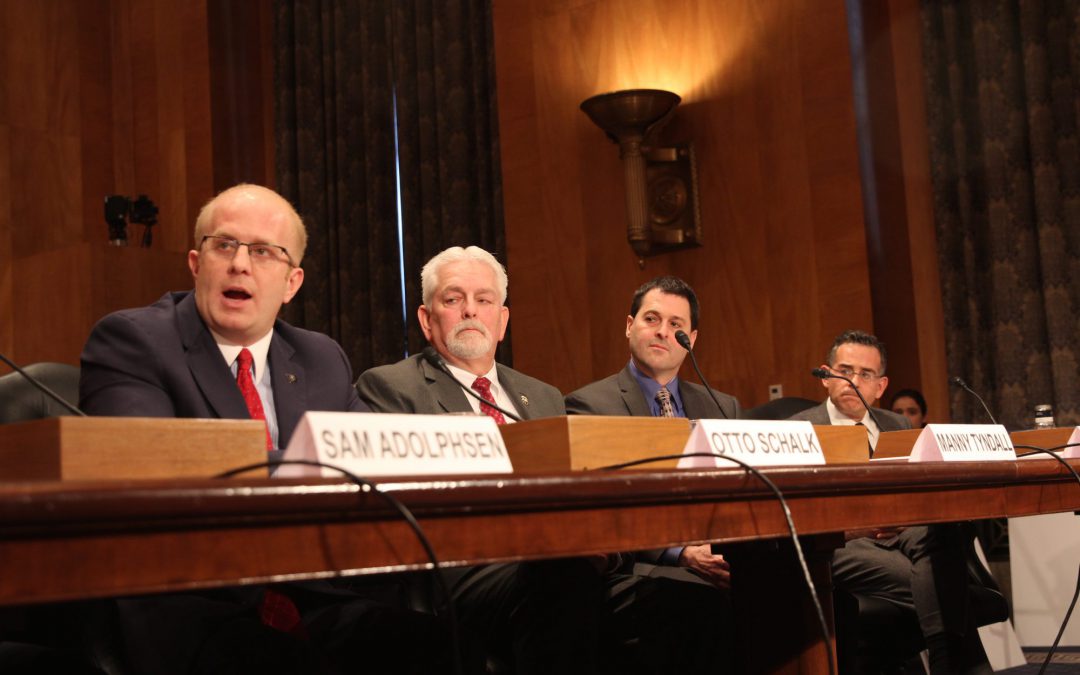WASHINGTON — The Affordable Care Act’s Medicaid expansion could be contributing to the opioid epidemic because its low co-payments mean Medicaid recipients can re-sell the drugs for a profit, a report released Wednesday from the Senate Committee on Homeland Security said.
“We must recognize that federal spending on health care – while certainly doing good – is also being used as a funding source that helps to fuel the opioid epidemic,” committee Chairman Sen. Ron Johnson said.
According to the report, Medicaid co-pays can be as low as $1 for 240 pills, which can be sold for up to $4,000 on the street. It also said that Medicaid expansion states have had higher increases in overdose deaths than states that didn’t expand Medicaid.
But Dr. Andrew Kolodny, co-director of Opioid Policy Research at Brandeis University, told the committee that the epidemic has its roots in overprescription of opioids.
“Starting in the 1990s, we began hearing that patients were suffering because we were too stingy with opioids,” Kolodny said. “We began hearing that even with long-term use, the chance of a patient getting addicted was less than 1 percent.”
Otto Schalk, the prosecuting attorney for Harrison County, Indiana, said that making it hard to prescribe opioids paid by Medicaid could help.
“One obvious solution would be to create a more rigorous checks and balances of the medical bills being submitted through Medicaid for payment,” Schalk said. “I’ve never understood why so many of the people that I’m prosecuting are getting prescription after prescription of high-powered opioids when a simple over the counter drug could be just as effective.”
However, prescriptions for opioids have been declining since 2010, according to Julia Zur, senior policy analyst for the Kaiser Family Foundation’s Program on Medicaid and the Uninsured.
“Increases in opioid prescribing, while they’re much higher than prescribing rates in other countries and much higher than they used to be, actually peaked in 2010,” Zur said in an interview, citing a 2015 CDC study. “[That] was four years before the (ACA Medicaid) expansion in most states, and then they began declining.”
Medicaid is also a major funder of addiction treatment, Zur said. “In most states, it covers all three of the medications approved to treat opioid addiction.”
Kolodny disagreed. “I don’t think Medicaid expansion is helping us as much as it could in terms of addiction treatment because the services are not there.”
The top Democrat on the committee, Missouri Sen. Claire McCaskill, issued a minority report arguing that while Medicaid may be a factor in the opioid epidemic, states expanding Medicaid under Obamacare are better equipped to handle the crisis and that recent deaths “stem from fentanyl and heroin” instead of prescription opioids.
“Medicaid has also been critical in fighting the opioid epidemic,” according to a written statement from McCaskill, who was absent due to illness. “As we make these improvements, we must do it in a way that does not jeopardize healthcare from those who so need it.”
Kolodny also blamed fentanyl for the recent increase in deaths.
“Overdose deaths are soaring because of fentanyl, because the heroin supply is so dangerous right now,” Kolodny said. “I don’t believe it’s Medicaid expansion.”

